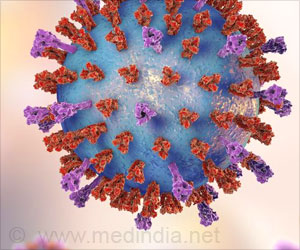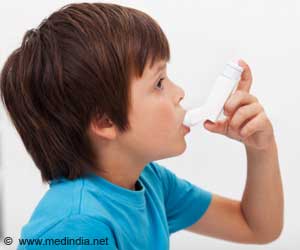- Newborns seem safe from respiratory syncytial virus (RSV), but healthy infants can get severely sick
- RSV's impact extends beyond mild symptoms, affecting healthy babies seriously
- New study shows that 80% of hospitalized infants were healthy before falling ill
Infants Admitted to US Intensive Care Units for RSV Infection During the 2022 Seasonal Peak
Go to source).
Misconceptions Shattered
"RSV is the number one cause of hospitalizations in young infants," said Natasha Halasa, MD, MPH, an infectious disease specialist at Vanderbilt University Medical Center in Nashville, Tennessee, and the lead author of the new study. But "the vast majority of kids didn’t have underlying medical conditions" when they got sick.According to Halasa, each baby in the study spent at least 24 hours in an ICU, creating emotional and logistical challenges for parents managing work and caring for other siblings. Surprisingly, most infants showed no signs of the severe impact RSV would have on them.
"Two to three of every 100 babies in the United States will be hospitalized for RSV in their first year of life," added study author Angela Campbell, MD, MPH, of the Coronavirus and Other Respiratory Viruses Division of the Centers for Disease Control and Prevention (CDC) in Atlanta, Georgia.
Protective Shield for Children from RSV
Until a short while ago, there existed just a single treatment option for high-risk children aged below 2 vulnerable to RSV – the monoclonal antibody known as palivizumab (trade name Synagis) (2✔ ✔Trusted Sourcepalivizumab (Rx)
Go to source).
This antibody is specifically designated for infants born prematurely, those with compromised immune systems, or those having chronic heart or lung conditions.
Administered every month, the injection is delivered throughout the 5-month peak span of the RSV season, spanning from autumn to spring.
A fresh monoclonal antibody, nirsevimab (sold as Beyfortus), designed to mitigate the most severe outcomes of RSV was sanctioned by the Food and Drug Administration (FDA) in July followed by CDC endorsement (3✔ ✔Trusted Source
CDC Recommends a Powerful New Tool to Protect Infants from the Leading Cause of Hospitalization
Go to source).
Nirsevimab safeguards newborns under 8 months born during or entering the RSV season, with one injection offering 150-day protection. Based on a clinical trial that revealed that nirsevimab reduces infant RSV hospitalization risk by over 75%, led to further actions from the FDA and CDC.
"We’re very excited that this product exists now," Campbell said.
Chart Reviews During the 'Tripledemic'
During the "tripledemic" peak of fall 2022 in the United States, when COVID-19, influenza, and RSV caused increased hospitalizations (4, 5), Halasa and her team analyzed records of 600 infants (average age 2.6 months) admitted to US ICUs due to RSV-related lower respiratory tract infections from October to December 2022.Among the admissions, over 60% were boys, with 44% being White, 23% Hispanic, 16% Black, 10% of unknown race, 5% multiple race, and 2% Asian.
Out of 600 infants, 95.3% (572) needed hospital oxygen, with 81.2% (487) lacking underlying conditions related to RSV risk. Some infants had cardiac or lung issues. Among 169 preemies, intubation risk was higher, but 90 of 143 intubations were full-term infants; sadly, two children from the study group passed away.
Describing the new study as "significant," Christopher Horvat, MD, MHA, based at the University of Pittsburgh Medical Center's pediatric ICU, emphasized its importance by highlighting that it reveals "the RSV burden is substantial for children who are otherwise healthy." Horvat, who was not involved in the work, said the new data highlight the value of preventive measures to prevent any repeat of the tripledemic.
Preventive Antibody for Defense Against Dangerous RSV
Simultaneous with the study's release, the American Academy of Pediatrics (AAP) issued a statement urging broad nirsevimab accessibility."The American Academy of Pediatrics recommends that all infants — and especially those at high risk — receive the new preventive antibody, nirsevimab, to protect against severe disease caused by respiratory syncytial virus (RSV), which is common, highly contagious, and sometimes deadly," said the organization in a statement.
AAP urged the CDC and Centers for Medicaid and Medicare Services collaboration to ensure nationwide nirsevimab availability, suggesting those unable to access it this year opt for the older palivizumab treatment.
References:
- Infants Admitted to US Intensive Care Units for RSV Infection During the 2022 Seasonal Peak - (https://jamanetwork.com/journals/jamanetworkopen/fullarticle/2808356)
- palivizumab (Rx) - (https://reference.medscape.com/drug/synagis-palivizumab-343140#4)
- CDC Recommends a Powerful New Tool to Protect Infants from the Leading Cause of Hospitalization - (https://www.cdc.gov/media/releases/2023/p-0803-new-tool-prevent-infant-hospitalization-.html)
Source-Medindia











